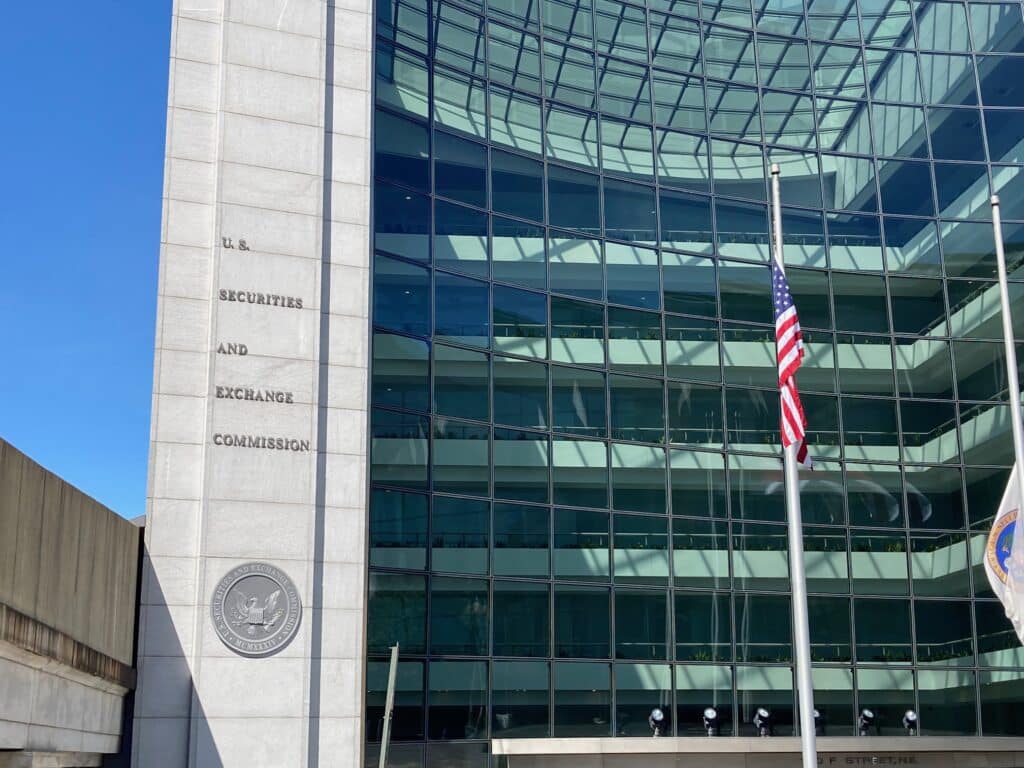The U.S. Securities and Exchange Commission (SEC) recently announced that it will be revisiting rule changes to the agency’s whistleblower program that were instituted last year. Whistleblower advocates applauded the move, highlighting in particular the agency’s plans to revise the “related action” rule. The SEC is currently accepting suggestions and comments from the whistleblower community about how to revise the “related action” rule.
On August 18, the National Whistleblower Center (NWC) and whistleblower law firm Kohn, Kohn & Colapinto (KKC) submitted comments to the SEC about the “related action” rule. The two groups previously worked with the SEC on rulemaking efforts throughout the SEC Whistleblower Program’s decade-long existence.
The groups’ letter begins by conveying the groups’ complete support towards the idea of revisiting the “related action” rules which “were needlessly and harmfully amended in the 2020 rulemaking process.
The rest of the letter outlines the issues with amended “related action” rules of the SEC Whistleblower Program. As the comments explain, the Dodd-Frank Act (DFA), the 2010 law that established the program, contains a “related action” provision. Under this provision, when the information provided to the SEC by a whistleblower also leads to a successful enforcement action by another federal agency, the whistleblower is entitled to an award based on the money recovered in this “related” enforcement action. The “related action” provision was designed to expand the scope of the DFA by incentivizing whistleblowers to cooperate with a number of different federal law enforcement agencies.
On September 23, 2020 however, the SEC approved a number of amendments to the whistleblower program, including a rule change which limits “related action” rewards. Under the new rule, if a “related action” could be covered by another whistleblower reward law, then the SEC can deny the “related action” rule. This rule was heavily criticized by whistleblower advocates as well as the two SEC Commissioners who voted no on the rule changes.
KKC and NWC’s letter explains that this new rule was purportedly meant to prevent whistleblowers from obtaining a “double recovery” by receiving both a “related action” award from the SEC and an award from the separate agency which carried out the related enforcement action. However, the letter states that “[t]he SEC admitted in its 2018-21 rulemaking proceeding that such a double recovery had never occurred.”
“The September 23rd rule did not simply prohibit double recoveries,” the letter continues. “It undermined the entire ‘related action’ provisions of the DFA and threatened numerous cases where whistleblowers may be covered under more than one whistleblower law and disincentivizing cross agency collaboration. The rule authorized the Commission to grant rewards below the 10% minimum mandated by Congress, and it authorized the Commission to deny mandatory related action awards, almost at-will, and created an illegal discretionary award process whenever a related action could result in compensation from another agency, regardless of the merits of the other agency’s program.”
Furthermore, according to the groups’ letter, the September 23 rule is illegal because it violates the “related action” provision of the DFA. “The section of the DFA regarding the Commission’s requirement to pay awards explicitly states that the Commission ‘shall pay’ rewards in ‘related actions’ within the mandatory 10-30% range,” the letter states. “There are no exceptions. Thus, the Commission lacked the discretion and legal authority to enact the September 23rd related action rule.”
The letter elaborates further on the incompatibility of the September 23 rule with the language of the DFA. The letter notes that the Supreme Court’s unanimous ruling in Digital Realty v. Somers “narrowed the ability of the Commission to approve rules for its whistleblower program that stray from clear statutory requirements.” Overall, the September 23 rule “radically changes Congress’ definition of a related action and violates the clear instruction from the Supreme Court as to how the DFA must be interpreted,” the letter states.
KKC and NWC’s letter also outlines the chilling effect the September 23 rule will have on whistleblowers. According to the groups, under the new rule, whistleblowers have to rely on old “defective” whistleblower reward laws instead of being able to receive “related action” rewards for the disclosure. The letter states that “[b]ecause there are numerous defective whistleblower laws that can be used under the current regulations to deny a whistleblower a reward under the DFA, the current rules create confusion, discourage whistleblowers, interfere with a whistleblower’s willingness to fully cooperate with other federal or state law enforcement agencies, and will cause significant hardship on whistleblowers covered under the deficient reward laws.”
The letter specifically outlines the deficiencies of the whistleblower reward program established by the Financial Institutions Reform, Recovery, and Enforcement Act (FIRREA) to highlight the problems of the September 23 rule. It also notes a number of other defective whistleblower reward laws, including the Major Frauds Act.
Because of the rule’s illegality, as well as the harm the rule would cause on the whistleblower program, KKC and NWC urge the SEC to fully withdraw the September 23 changes to the “related action” rule. The groups concludes the letter by offering proposed amendments to the “related action” rule which would “prevent double-awards but also adhere to the plain meaning of the DFA.”
In his August 2 statement concerning the plans to revisit the September 23 rule changes, Chair Gensler did not offer a concrete timeline for the revision process. He did state that the agency will consider potential changes “later this year.”
Read:
Kohn, Kohn & Colapinto and the National Whistleblower Center’s Letter to the SEC
